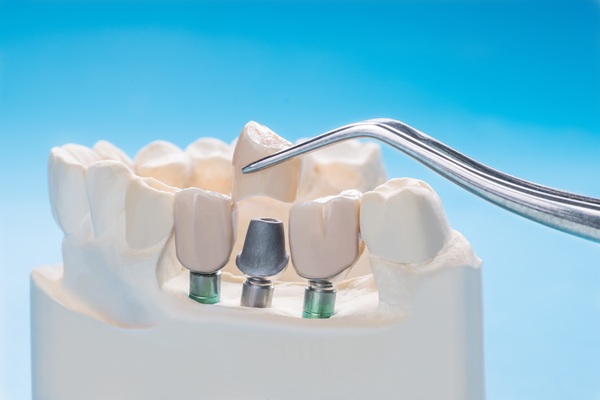When Root Canal Therapy May be Recommended

It is important to see your general dentistry office twice a year for regular cleanings and checkups and to make sure you do not need any procedures like a root canal. The cleanings will not only remove plaque that is building up on your teeth which reduces tooth decay, but this will also help prevent gum disease. Sometimes your general dentist might need to fill a tooth, and these are all great preventative measures that will save you trouble down the road.
There are also times when your general dentistry office needs to do procedure. Maybe you have a broken tooth that needs a veneer or a crown, or perhaps you need something bonded. While these procedures are more involved, they will all help you feel better about your smile and help your teeth last longer, but what about a tooth that becomes infected?
When a dentist finds an infected tooth, this is one of the times he or she will recommend this type of procedure, and there are other times for this recommendation as well.
A tooth infection
When a tooth becomes infected, it means that bacteria have made it inside the tooth's interior space, known as the pulp cavity. The pulp that lives inside this cavity is made of nerves, blood vessels, and connective tissue. This is not only very painful, but it poses a serious threat to your overall health.
When an infection gets into the pulp of a tooth, it spreads out into the jaw and the gums. This could cause deterioration of your jaw which can weaken the foundation that the other teeth sit on and alter the appearance of your face. This infection could also spread into your facial tissue, ears, and neck.
If the infection gets into your bloodstream, it could spread to your heart and cause damage there. If the infection crosses the blood-brain barrier, it could colonize your brain and form an abscess. Your brain would respond by swelling, and this would put pressure against your skull, causing damage throughout your brain.
Chipped, broken, or deep cavity teeth
When your dentist finds that the enamel of your teeth has been broken through by either a chip, a break, or a deep cavity, they will likely recommend this type of therapy. This is because the dentist knows that the enamel of the tooth creates such a tight seal that bacteria is not able to penetrate it and enter the pulp of the tooth. When this seal has been broken, it cannot be replaced, and now the only way to keep the tooth and protect you from infection is a root canal.
Swollen gums and pain
Swollen gums are usually a sign of gum disease, which can be treated one way, but swollen gums with tooth pain are usually a sign that a root canal is needed. This is because the gums are swollen because of infection, and the pain in the tooth is an indication that the infection is coming from inside a tooth. Listening to your dentist's advice can save you a lot of trouble, and potential expense down the road, so play it safe, and you will be much better off.
Request an appointment here: https://www.roswelldentalsmiles.com or call Roswell Dental Smiles at (770) 238-1209 for an appointment in our Roswell office.
Check out what others are saying about our dental services on Yelp: Root Canal Treatment in Roswell, GA.
Recent Posts
A person may need a root canal to clean out the inside of their tooth and remove infection. However, not all infections present symptoms, and if they do, different people may experience them differently. For this reason, understanding whether you need a root canal can become tricky.While no two people are entirely alike, most will…
A root canal is just one of the many treatments that dentists perform. For this, the dental professional must have training as an endodontist. Otherwise, you would need to see an actual endodontist. Either way, this process entails removing the pulp from inside a severely damaged or diseased tooth. After cleaning and disinfecting the area,…
Looking for information on preventive dentistry? Read on to learn more. A good preventive dentist can save you money on significant tooth problems, pain, and costly treatments in the future. All treatments or procedures that prevent tooth decay, tooth damage, and gum disease fall under preventive dentistry. Fortunately, when preventive dentistry is incorporated into daily…
Practicing preventive dentistry strategies can help you avoid serious dental problems. It can support your personal goals in keeping your gums and teeth healthy. Prevention is always better than going through treatments for serious dental problems. If you want to know how preventive dentistry can avoid the development of a serious oral problem, here are…


